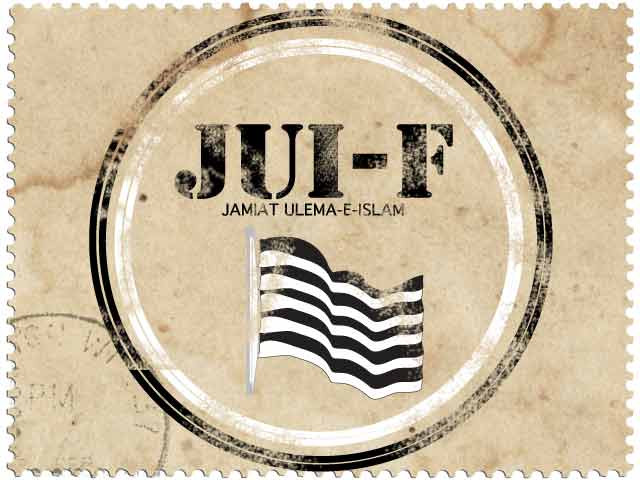JUI-F’s election plan: English, Urdu versions of manifesto termed incongruent
Analysts’ questions on party’s promise to abolish interest-based banking remain unanswered.

“The state will ensure the provision of every citizen’s basic needs and ensure that their safety is ensure,” says JUI-F deputy secretary general. PHOTO: FILE
While the Jamiat Ulema-e-Islam-Fazl (JUI-F) wants to transform Pakistan into an Islamic welfare state, analysts raised concerns over mentions of Jihad in its manifesto and differences between the document’s Urdu and English versions.
In the sixth seminar of its series, the Sustainable Development Policy Institute (SDPI) hosted a discussion on the JUI-F manifesto in Islamabad on Thursday.
Political analyst Hassan Khan pointed out a stark contrast in the contents of JUI-F’s Urdu and English manifestos.
“The English version is more enlightened and inclusive, while the Urdu version has conventional religious undertones,” Khan said.
He noted that the chapter on Sharia was missing in the English version while a chapter on women rights was missing in the Urdu version.
JUI-F Deputy Secretary-General Malik Sikandar Khan said the party had pledged to make Pakistan an Islamic welfare state.
He said JUI-F would transform the current system by making changes in accordance with Islamic laws.
Khan referred to the welfare state model under Prophet Muhammad (pbuh) and during Hazrat Umer’s rule and added that society made socio-economic and cultural progress when Islamic laws were implemented in true spirit. “The state will ensure the provision of every citizen’s basic needs and ensure that their safety is ensure,” Khan said. Analyst and TV anchor Saleem Safi appreciated JUI-F’s willingness to work with liberal and progressive political parties, but advised the party to focus its energy on implementing its own manifesto’s points.
Safi raised questions as to how the JUI-F would abolish interest-based banking; questions which went largely unanswered.
He also criticised the mention of compulsory Jihadi training in the manifesto, arguing that such actions would only create more chaos in society.
Published in The Express Tribune, April 19th, 2013.



















COMMENTS
Comments are moderated and generally will be posted if they are on-topic and not abusive.
For more information, please see our Comments FAQ